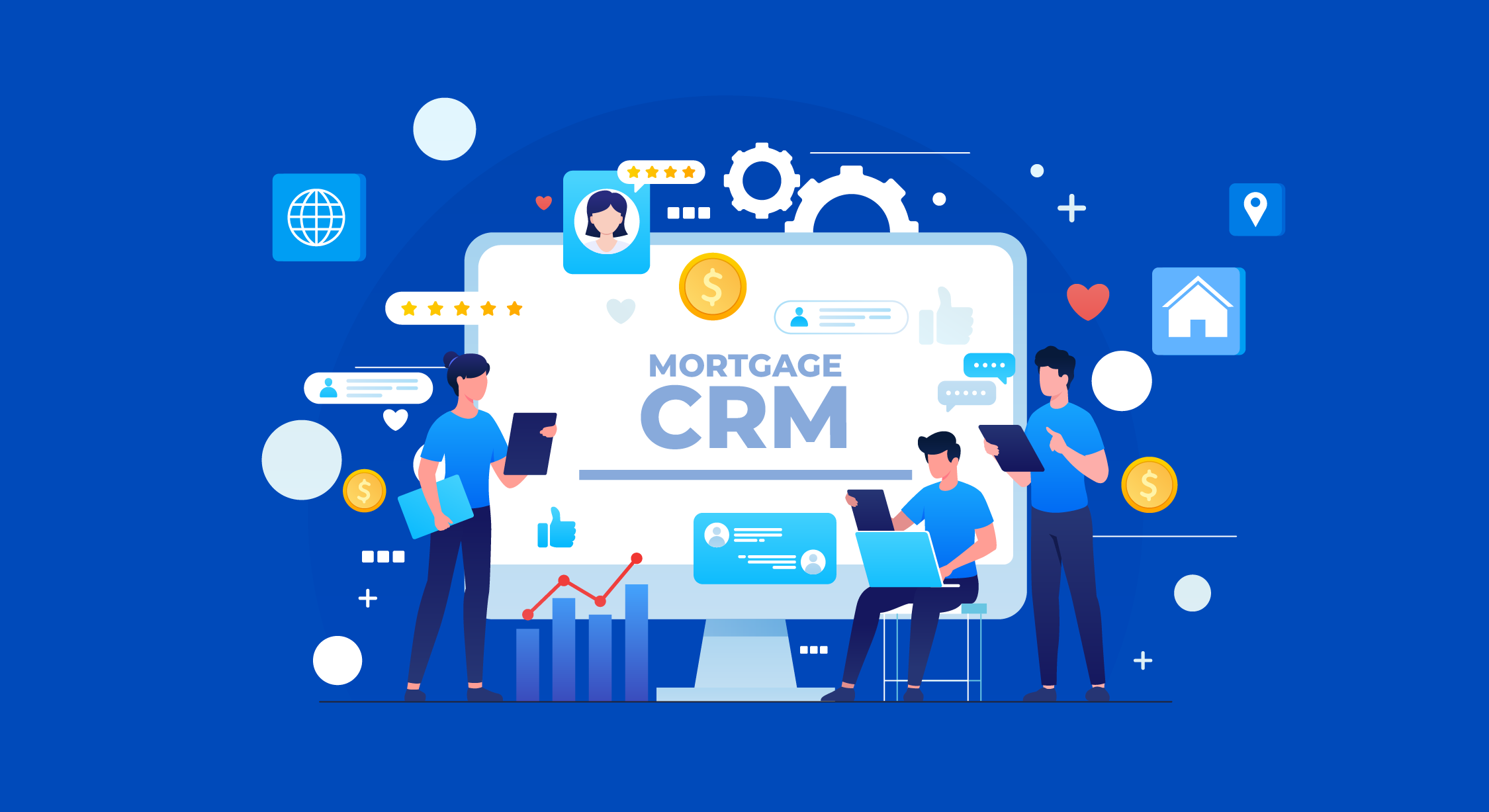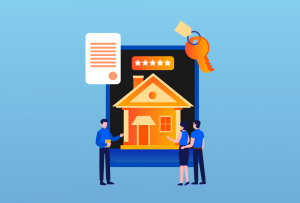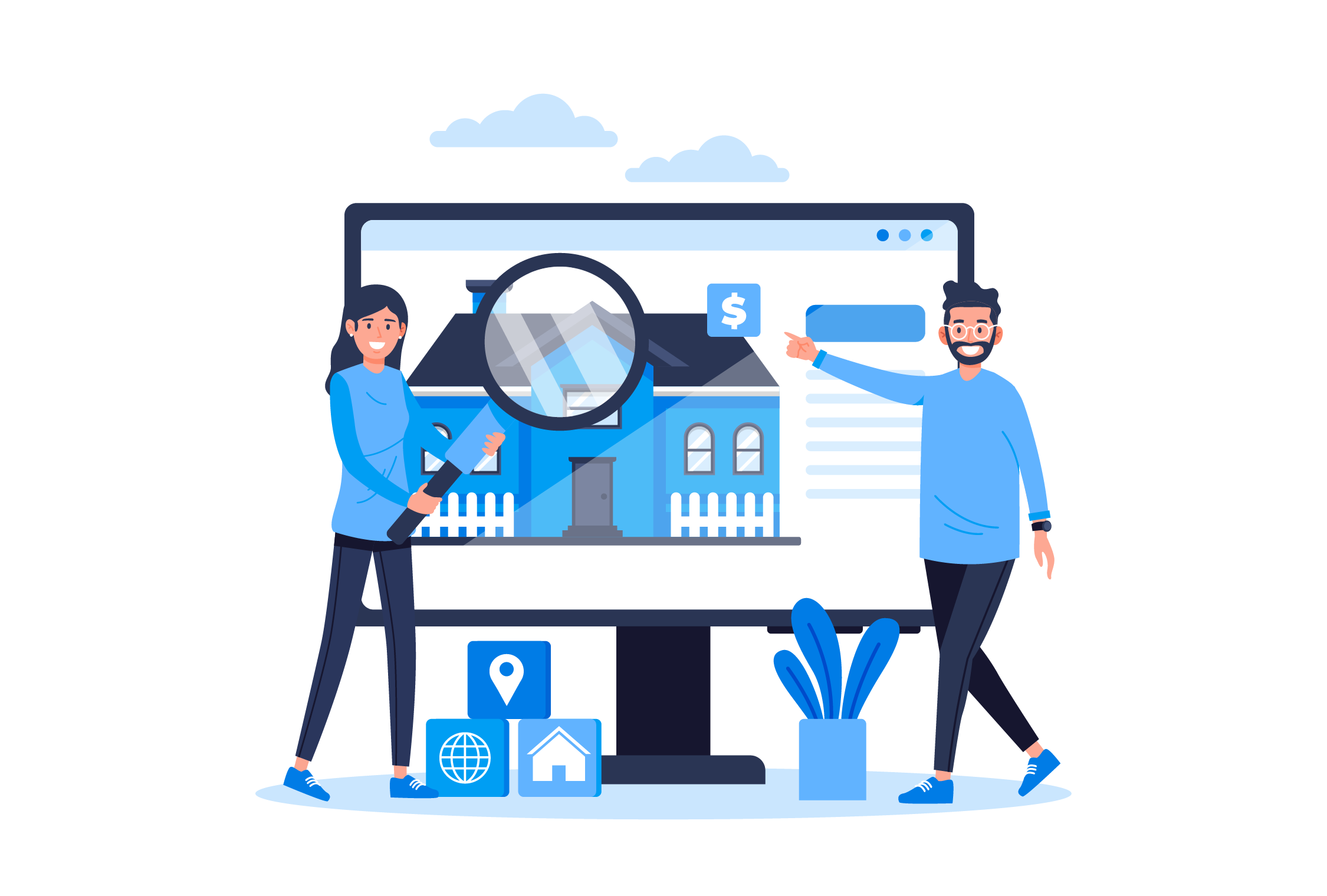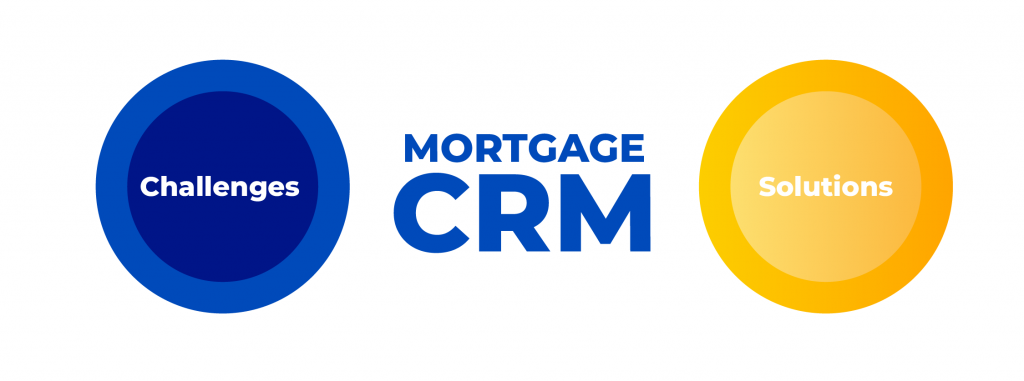Want to see how technology can improve your lending operations?
Experion’s Mortgage CRM is tailored to meet client-specific needs, streamlining the whole lending process and boosting efficiency.
A satisfied customer can be your best marketing tool, while a lost lead can mean missed opportunities. That’s where the right Customer Relationship Management (CRM) software comes in. Imagine having a digital powerhouse that not only remembers every client interaction but also predicts their next move. This isn’t just about managing contacts; it’s about nurturing relationships, streamlining workflows, and, ultimately, closing more deals. Mortgage CRMs are the secret weapon for businesses looking to gain a competitive edge. Let’s dive in and explore how the right CRM can transform your mortgage business.
What is Mortgage CRM?

A Mortgage CRM is a specialized software platform meticulously crafted for the mortgage industry. It is engineered to simplify and enhance the mortgage lending process through specialized software. Acting as a centralized hub, it efficiently manages customer interactions, tracks loan progression, and enhances overall operational efficiency. By consolidating customer data, automating tasks, and providing insightful analytics, mortgage CRMs empower lenders to deliver exceptional customer experiences while boosting productivity and profitability.
It offers a comprehensive suite of features to manage customer interactions, track loan pipelines, automate marketing efforts, and generate insightful reports. Core functionalities include:
- Contact Management: Centralized storage and organization of customer information, including contact details, communication history, and preferences.
- Lead Management: Efficiently capturing, qualifying, and nurturing leads through the sales pipeline.
- Loan Tracking: Monitoring loan progress, managing documents, and setting reminders for critical milestones.
- Marketing Automation: Creating and executing targeted marketing campaigns, including email, SMS, and social media.
- Document Management: Securely storing and accessing loan-related documents for easy retrieval.
- Analytics and Reporting: Generating valuable insights into customer behavior, loan performance, and sales trends.
Importance of Mortgage CRM in Mortgage Lending
 In today’s fiercely competitive mortgage market, a powerful CRM system has become essential rather than optional. It acts as the core of efficient customer relationship management by providing a detailed view of each borrower’s journey. By automating repetitive tasks like lead nurturing and document handling, CRMs greatly improve operational efficiency and reduce errors. Additionally, they are crucial for maintaining compliance with complex mortgage regulations through precise recordkeeping and audit trails.
In today’s fiercely competitive mortgage market, a powerful CRM system has become essential rather than optional. It acts as the core of efficient customer relationship management by providing a detailed view of each borrower’s journey. By automating repetitive tasks like lead nurturing and document handling, CRMs greatly improve operational efficiency and reduce errors. Additionally, they are crucial for maintaining compliance with complex mortgage regulations through precise recordkeeping and audit trails.
Market Trends in Mortgage CRM
The mortgage CRM landscape is rapidly evolving, driven by technological advancements and shifting customer expectations. Key trends shaping the industry include:
- Increased Automation: Leveraging AI and machine learning to automate repetitive tasks, freeing up loan officers to focus on building relationships and closing deals.
- AI Integration: Incorporating AI-powered tools for lead scoring, predictive analytics, and intelligent automation to optimize processes.
- Mobile Access: Providing on-the-go access to CRM functionalities through mobile apps, enabling real-time updates and decision-making.
- Cloud-Based Solutions: Transitioning to cloud-based CRMs for enhanced accessibility, scalability, and cost-effectiveness.
Difference Between Mortgage CRM and Generic CRMs
While generic CRMs offer basic contact management and communication tools, mortgage CRMs are specifically tailored to address the unique complexities of the mortgage industry. They incorporate features such as loan origination integration, compliance tracking, and industry-specific reporting, providing a more comprehensive and tailored solution for mortgage lenders.
Benefits of Using a Mortgage CRM

- Enhanced Customer Experience
A mortgage CRM empowers lenders to deliver personalized and exceptional customer experiences. By capturing and analyzing customer data, lenders can tailor interactions, provide timely information, and address customer needs effectively. - Efficiency and Automation
Mortgage CRMs automate repetitive tasks, such as data entry, email campaigns, and document management, significantly improving operational efficiency. This frees up loan officers to focus on building relationships and closing deals. - Regulatory Compliance
Adhering to complex mortgage regulations is crucial. A mortgage CRM aids in maintaining compliance by automating audit trails, tracking document retention, and providing tools for regulatory reporting. - Data Analytics and Reporting
CRMs offer valuable insights into customer behavior, loan performance, and sales trends. By analyzing data, lenders can identify opportunities for improvement, optimize marketing efforts, and make data-driven decisions.
Essential Features of a Mortgage CRM
- Lead Management and Scoring
Effective lead management is essential for mortgage lenders. A CRM should provide tools to capture, qualify, and prioritize leads based on specific criteria. Lead scoring helps identify high-potential leads for targeted follow-up. - Marketing Automation
Automated marketing campaigns are crucial for nurturing leads and building relationships. A mortgage CRM should enable personalized email campaigns, social media integration, and drip marketing sequences. - Loan Tracking and Pipeline Management
Efficiently managing the loan pipeline is critical for closing deals on time. A mortgage CRM should allow loan officers to track loan status, manage documents, and set reminders for important deadlines. - Integration Capabilities
Seamless integration with other systems, such as loan origination systems (LOS) and electronic signature platforms, is essential for streamlining workflows. A mortgage CRM should offer robust integration capabilities to ensure data consistency and efficiency. - Mobile Access
The ability to access CRM data and functionalities on mobile devices is essential for today’s on-the-go professionals. A mobile-friendly CRM empowers loan officers to stay connected with clients and manage their pipelines from anywhere.
Choosing the Right Mortgage CRM
Technology serves different purposes across BFSI sectors, and Experion can craft the right mortgage CRM to meet your needs — be it automating tasks, simplifying loan origination, or boosting productivity.
- Identifying Business Needs: Before selecting a mortgage CRM, it’s crucial to assess your specific business needs, including the size of your team, the complexity of your loan processes, and your desired level of automation. Clearly defining your requirements will help narrow down your options and select a CRM that aligns with your business goals.
- Evaluating Features and Usability: Consider the CRM’s core features, such as lead management, loan tracking, marketing automation, and reporting. Additionally, evaluate the user interface and overall usability to ensure a smooth user experience for your team. A user-friendly system will enhance adoption and productivity.
- Integration and Scalability: The CRM should seamlessly integrate with your existing systems, such as your loan origination system (LOS) and marketing platforms. This integration ensures data consistency and efficiency. Moreover, the CRM should be scalable to accommodate future growth and changes in your business.
- Customer Support and Training: Reliable customer support and comprehensive training resources are essential for successful CRM implementation. Consider the vendor’s reputation for support and the availability of training options. Adequate support will help your team maximize the CRM’s potential.
- Cost and Budget Considerations: Evaluate the cost of different CRM solutions, including licensing fees, implementation costs, and ongoing maintenance expenses. Choose a solution that fits within your budget and offers the best value for your investment.
Implementing a Mortgage CRM
- Initial Setup and Data Migration: Implementing a mortgage CRM involves several steps, including data migration from existing systems, configuring user roles and permissions, and customizing workflows. Careful planning and execution are essential for a smooth transition.
- Customization and Configuration:Tailor the CRM to your specific business processes and workflows. This may involve customizing fields, creating custom reports, and integrating with other systems. Customization ensures the CRM aligns with your unique operations.
- User Training and Adoption: Offer thorough training for your team to ensure they can use the CRM effectively. Highlight the benefits of the CRM to encourage adoption and provide continuous support. Emphasize that effective training and clear communication are crucial for maximizing user engagement and making the most of the system.
- Ongoing Maintenance and Support: Regularly update the CRM with the latest features and security patches. Establish a maintenance plan and provide ongoing support to users. Proactive maintenance ensures optimal performance and data security.
Common Challenges and Solutions in Mortgage CRM

- Data Security and Privacy
Protecting sensitive customer data is paramount. Implement robust security measures, such as encryption, access controls, and regular security audits. Prioritize data security to safeguard customer information and comply with regulations. - Integration Issues
Merging a CRM with existing systems can present challenges. Partner with your IT team to achieve seamless integration and synchronized data. Strong communication and cooperation are key to overcoming these hurdles. - User Resistance
Overcoming user resistance to change is crucial for successful CRM adoption. Provide clear communication, training, and incentives to encourage user adoption. Address user concerns and demonstrate the benefits of CRM in fostering a positive attitude. - Maintaining Data Quality
Accurate and up-to-date data is essential for the CRM’s effectiveness. Establish data quality standards, implement data cleansing processes, and encourage users to maintain data accuracy. Regular data audits and cleansing help ensure data reliability.
Future Trends in Mortgage CRM
- AI and Machine Learning: AI and machine learning will play an increasingly important role in mortgage CRM, enabling predictive analytics, intelligent automation, and personalized customer experiences. These technologies will revolutionize the way lenders operate, allowing for more efficient processes and improved decision-making.
- Enhanced Mobile Functionality: Mobile CRM solutions will become even more prevalent, allowing loan officers to stay connected with clients and manage their pipelines on the go. This trend will further empower loan officers to provide exceptional customer service and increase productivity.
- Greater Personalization: Mortgage CRMs will offer advanced segmentation and personalization capabilities, enabling lenders to deliver highly targeted marketing messages and improve customer engagement. By understanding customer preferences and behavior, lenders can tailor their offerings to meet individual needs.
How Experion Global Can Help
Custom Solutions
At Experion Global, we design tailored CRM solutions specifically for mortgage lenders, giving you a competitive edge in the market. With our deep industry expertise, we create solutions that address your unique challenges and goals.
Expertise and Experience
Our extensive experience in the mortgage industry means we understand the hurdles and opportunities lenders face. This knowledge allows us to deliver CRM solutions that drive your business growth effectively.
Key Takeaways
- A mortgage CRM is essential for managing customer relationships, improving efficiency, and ensuring compliance in the mortgage industry.
- Selecting the right CRM involves careful consideration of business needs, features, usability, integration, and cost.
- Successful CRM implementation requires proper planning, training, and ongoing support.
- Embracing emerging trends like AI and mobile technology will be crucial for staying competitive in the mortgage market.
- Experion Global offers customized CRM solutions and expertise to help mortgage lenders achieve their goals.
By investing in a robust mortgage CRM and leveraging the expertise of providers like Experion, lenders can enhance customer satisfaction, increase productivity, and drive business growth.

